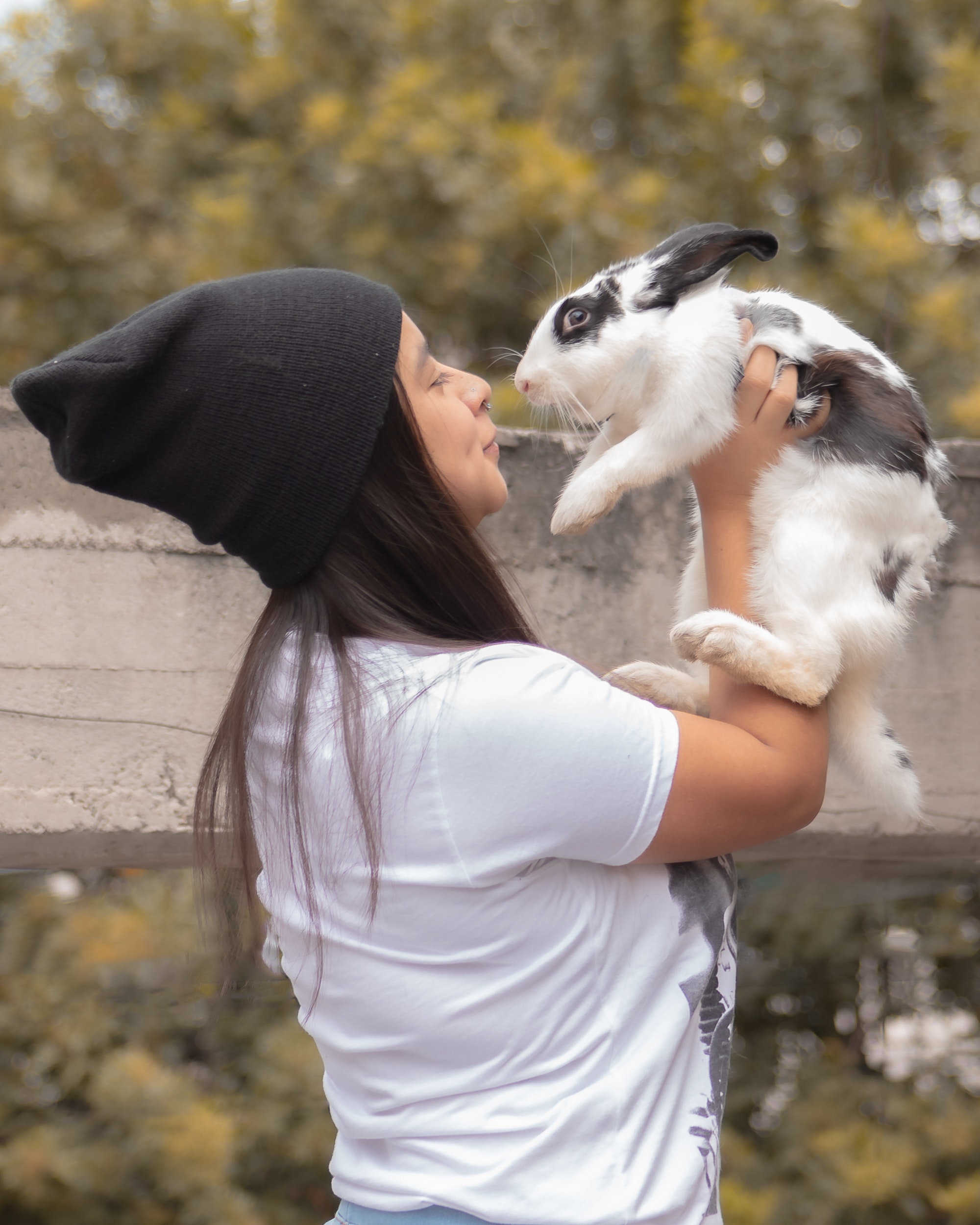Rabbits are a popular choice of pet for many families. Coming in at third in popularity after cats and dogs in the UK, they’re a great alternative if you need a pet that is a little lower maintenance. However, they still have specific characteristics and needs that you will need to cater for if they are to be the pet for you.
In support of retailers wishing to get involved in Rabbit Awareness Week (RAW), we’ve compiled a list of rabbit care pointers to help with the process of buying a bunny.
Be prepared to look after a rabbit for a long time
Rabbits tend to live a lot longer than expected. Depending on the breed, your bunny could live up to 15 years. This differs from a lot of other small animal types such as hamsters and guinea pigs, where the average life span is only around 2-3 years.
While it’s great you get to spend more years with your bunny, this makes adopting one a much bigger commitment. It requires more time, dedication and patience if you want to form a life-long companionship with your pet.
Ensure their cage can accommodate for a full-size rabbit
When a bunny grows into a rabbit, they naturally take up more room. Ranging from anywhere between 34–50 cm in length and 1.1–2.5kg in weight, it’s important their enclosure is big enough for them to comfortably move around in.
A good way of checking the adequacy of their cage is if it measures at least three to four times their full length (when they’re sprawled on the ground) and if it’s high enough to allow the rabbit to comfortably stand up on their hind legs without touching the roof.
Pet rabbits have similarities to their wild ancestors
Regardless of whether a rabbit grows up in the wild or is neutered as a pet, some characteristics will remain the same.
For instance, in the wild rabbits live in large groups, so it is frequently common for rabbits to get lonely and display depressed symptoms if they are the sole rabbit. Therefore, consider adopting a pair of bunnies instead of just one, so they can keep each other socialised when you’re busy.
Wild rabbits are commonly preyed upon and have built up a flight or fight tolerance when fleeing from danger. It’s the same for a pet rabbit. So in case they ever they feel frightened or threatened, ensure that their pen offers efficient security and shelter.
Bunnies will need medical care
Rabbits have evolved to hide their weaknesses. This makes it very difficult to know if they’re sick until extreme signs of illness or upset are displayed. The best way to monitor their health is by learning the early signs of ill health or disease, paying close attention to their behaviour and taking them to the vets for medical advice and treatment when necessary.
Some of the subtle signs to look out for are:
- A change in eating habits
- A change in toilet habits
- Sitting in a hunched position
- Fluctuating energy levels
- Drooling
- Matted/balding fur
If you have a female rabbit, they’re particularly susceptible to uterine cancer, especially if your rabbit has had babies, as this can lead to astrain on their reproductive system and potentially the formation of cancerous tumours with age. In this case, support and treatment from a veterinarian will be needed to determine next steps.
Supplements can also be beneficial for maintaining your rabbit’s health and wellbeing. Our Rabbit Vit-Min Drops provide essential vitamins that can boost your rabbit’s resistance to ailments.
Rabbits aren’t meant to be cuddled
Although they may look fluffy and cute, rabbits tend to prefer being kept on the ground where they feel safe to roam around. Chances are you will be kicked or scratched if you pick them up in their attempt to try and escape.
If you constantly pick your rabbit up, you could run the risk of them seriously injuring themselves as they try to break out of your hold. Therefore, it’s best to keep the play to floor level and give them the option to jump on your lap if they want to.
Rabbits have special dietary requirements
Despite what you see in the films, rabbits can’t just live on carrots. They need to eat a high amount of fibre and a low amount of sugar/starch to keep their sensitive digestion system moving.
This can be easily achieved through a balanced, herbivore diet (following these proportions):
- 80% grass hay
- 15% leafy greens e.g. kale, bok choy, parsley etc
- 4% pellets
- 1% treats
Remember to keep the food portions relative to the size of your rabbit to avoid excessive weight gain.
Daily exercise is a requirement
Although they do not need frequent walks like dogs, rabbits do need regular exercise outside their hutch to relieve pent-up energy. This doesn’t require anything too extreme however – just simply allowing them space to move around freely is plenty stimulation for one day.
Make sure to rabbit-proof the area that your rabbit will be roaming in if you are going to do this, in addition to blocking access to electrics/escape routes and keeping poisonous plants out of reach.
Rabbits do the cleaning themselves
There’s no need to bathe a pet rabbit in most cases – in fact, overdoing the cleansing can be very harmful to their health. Once their thick fur is soaked in the water, it takes a long time to dry off which increases the risk of hypothermia (even in summer).
However, there are certain cases where washing your rabbit may be necessary, such as when the fur around their backend becomes caked with urine or faeces. Failing to wash this area could lead to the development of urine scalding or sores, as well as flystrike. Our shampoo and foaming cleanser – which can be used without water – was developed to gently clean your rabbit without causing them harm or distress.
Luckily, rabbit aren’t the smelliest of pets and are very efficient self-cleaners. However, they will still need brushing regularly (especially long-haired rabbits) to prevent matting and having their nails trimmed every four to six weeks.
Keep your rabbit entertained
Bunnies can get bored too after spending too much time on their own. Puzzle feeders, hard plastic toys and cardboard cutouts can help keep your rabbit entertained during long period of time on their own.
To wear down their growing teeth, you can provide grass mats and teeth-trimming treats which they can gnaw on. Our Salt and Mineral Lick provides salt, calcium and essential minerals whilst keeping teeth trim.
And of course, there’s always the option of adopting more than one rabbit to keep your pet entertained!
To summarise…
Rabbits are great pets if you are looking for an alternative animal to cats and dogs. However, just because they are lower maintenance doesn’t mean they are no maintenance, as it is still vital that you educate yourself about their care needs.
Be sure to explore our product range for rabbits to ensure that your bunny is getting the best care possible, or follow our blog for more pet care advice and tips.





